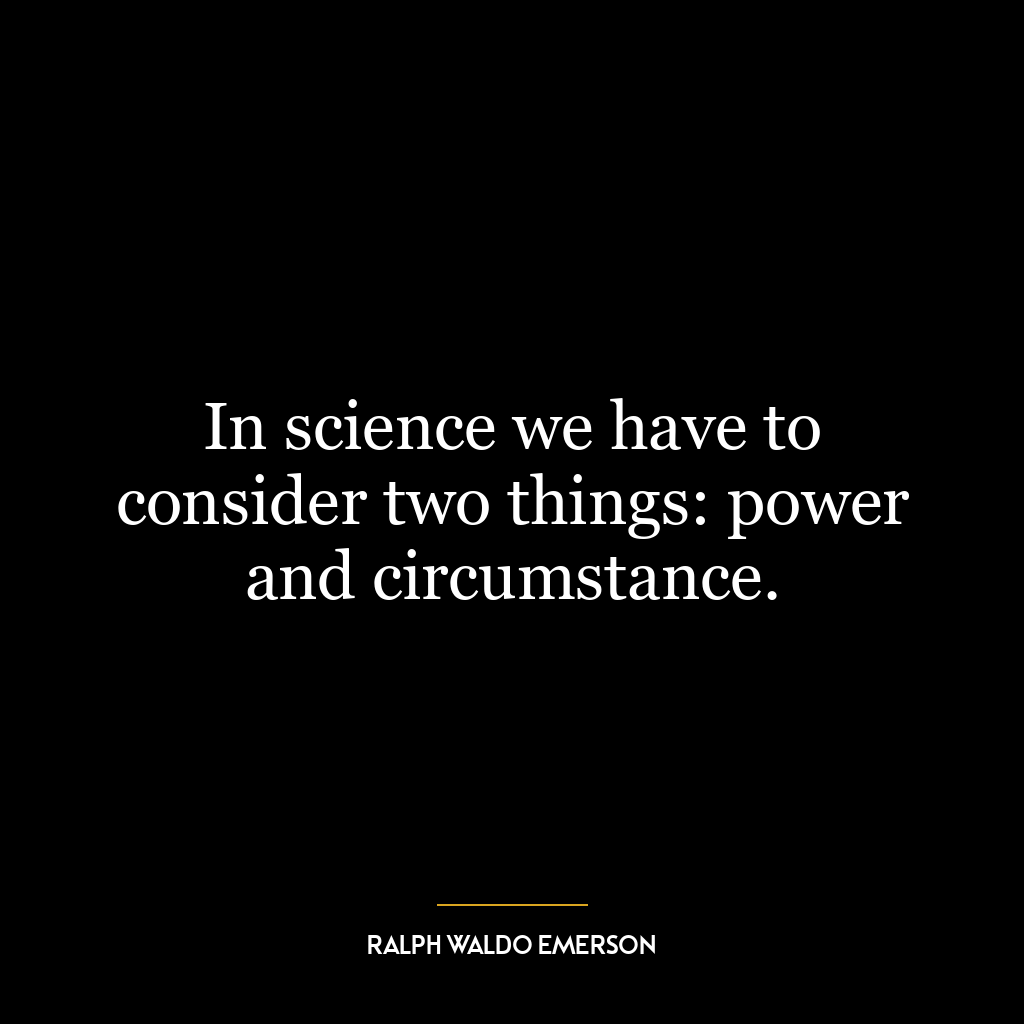This quote can be interpreted as emphasizing teh importance of both ability and context in scientific endeavors. Power, in this context, could refer to the knowledge, skills or technological capabilities that one possesses. It is indeed about having the capacity to explore, investigate and discover new things in the realm of science.
Conversely, circumstance pertains to external conditions or factors that may affect scientific work.This could include available resources, environmental conditions, social setting or historical period. circumstance often determines what is possible at a given time.Together, power and circumstance shape how science progresses. For instance, a scientist might have a brilliant idea (power), but if they lack necessary resources (circumstance), it would be challenging for them to carry out their research successfully.
In today’s world where technology is rapidly advancing and global challenges such as climate change are becoming more pressing than ever before – this concept holds great relevance. The power aspect can be seen in our growing technological capabilities which enable us to tackle complex problems like never before – from genetic engineering helping us fight diseases to AI solving intricate computational issues.
However, our circumstances – such as political climates affecting funding for research projects or societal attitudes towards certain types of scientific inquiry – play an equally notable role in shaping what we can achieve scientifically at any given time.
In terms of personal development too this idea has potent applications: one must not only focus on enhancing their abilities (power) but also on creating conducive environments (circumstances) for growth and success. Such as: you might possess great talent (power), but without supportive surroundings like mentors or opportunities (circumstances) your potential may remain unrealized.Thus “Power” gives you potential while “Circumstance” provides opportunity – both are crucial for progress whether it’s in science or personal growth.















